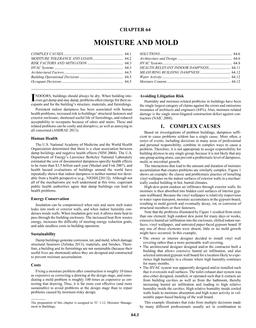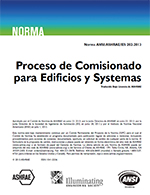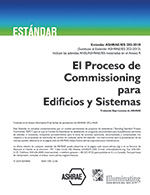Description
Indoors, buildings should always be dry. When buildinginteriors get damp and stay damp, problems often emerge for their occupants andfor the building’s structure, material, and furnishings. Persistent indoordampness has been associated with human health problems, increased risk tobuildings’ structural fasteners and exterior enclosure, shortened useful lifeof furnishings, and reduced acceptability to occupants because of odors andstains. These and related problems can be costly and disruptive, as well asannoying to all concerned.COMPLEX CAUSESMOISTURE TOLERANCE AND LOADSRISK FACTORS AND MITIGATIONHVAC SystemsArchitectural FactorsBuilding Operational DecisionsOccupant DecisionsSOLUTIONSArchitecture and DesignHVAC SystemsHEALTH-RELEVANT INDOOR DAMPNESSMEASURING BUILDING DAMPNESSWater ActivityMoisture ContentNo. of Pages: 15
Citation: 2019 ASHRAE Handbook¿¿¿HVAC Applications
Product Details
- Published:
- 2019
- Number of Pages:
- 15
- Units of Measure:
- Dual
- File Size:
- 1 file , 12 MB
- Product Code(s):
- D-A642019IP




